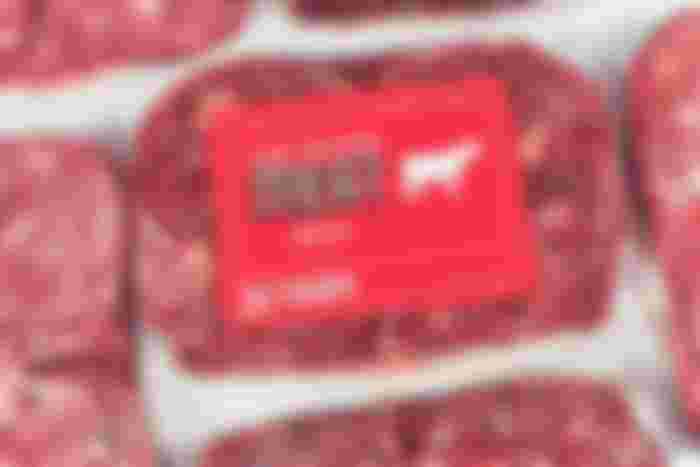
Originally published on Medium.com
In 2013 the world's first lab-grown beef patty was made and eaten in London. The cost? $330,000 worth of research! Unfortunately, the finished product was edible but didn't taste quite like a hamburger. One reporter said it was a start, but not a viable replacement for beef at this time.
Fast forward to 2018 and the vegan food company Just created the world's first slaughter-free chicken nuggets from nothing more robust than a single feather. The breast meat of the chicken was grown in a lab using a vegetable-based culture, and it apparently tastes just like the chicken harvested from a bird's corpse.
In fact, a number of companies claim to be on the verge of producing lab-grown meat that is both a good-tasting, nutritious, viable replacement for traditionally slaughtered meat and also able to compete in cost.
Why is this exciting, and how is this going to change the world?
It Preserves the Nutrition
Vegan companies, including Just, have long been trying to create vegetable-based meat replacements. Some of them don't accurately imitate the taste very well while others are close to spot-on. While this might be appealing for someone who enjoys the taste of meat but wants to live a cruelty-free (in as much as possible) lifestyle, it doesn't change the fact that all these processed vegetables don't have the same nutritional value as meat.
The current consensus among scientists is that humans evolved to be omnivores. Vegans, for all their compassion and empathy, are reliant on supplements to make their diet complete.
On the other hand, there's the carnivore movement that's happily eating themselves to an early grave because human beings also require the nutrients given to us by plants.
So what do we do when we don't want to be responsible for the cruelty that comes with eating meat and killing sentient creatures but still want the nutrients of that meat?
That's where lab-grown meat comes in. The chicken that produced the nuggets in Just's project is still alive today, and it will continue to live until it dies of an injury, old age, or some untreatable disease. It's more of a pet, really, than a farm animal.
It Helps the Planet
The Ozone
Do you know what's worse than emissions from cars? The emissions from cows! The fact that there are so many of them being bred for the sole purpose of satisfying our voracious appetites means that the gas emissions from their flatulence is far, far more impactful on our planet than even automobiles. Methane, which is produced by cows, is 23 times more potent when it comes to warming the planet!
Let's face it, the number of countries with a majority population actually rich enough to afford enough cars for each family is very small. Most countries rely on carpools and subways to move people around while many countries still rely on the labor of animals, such as donkeys.
This means that if everyone in the USA were to give up their cars, the planet would still be in trouble. The problem is that no one is willing to recognize the biggest issue when it comes to our climate: our penchant for meat.
Conservation
-On Land
There's a danger in the growing human population. We're encroaching on the territories of animals that are fast becoming endangered, and all of those people want to eat. Moreover, for better or for worse, more people are eating meat and have access to meat today than at any point in history.
What does this mean? It means that people are, firstly, clearing a lot of lands that used to support a thriving ecosystem in order to feed themselves. That can't be helped, even if you eat a vegan or vegetarian diet; you need space to plant your crops.
Secondly, people are clearing land to house the animals they intend to process and consume. What do we most commonly eat? Cows, chickens, and pigs. Of course, some people prefer more exotic meats, so other farms might have a wider variety of animals.
Thirdly and lastly, we then have to clear even more land to make feed for the animals, if feeding them is being done in a humane way, that is.
All of this means that a lot more land is being used than should be, all in order to feed our growing population the meals it wants to eat. The effect it's having on various ecosystems and biomes is astronomical!
If you think that this is just a drop in the bucket compared to hunting or the pet industry you're wrong. Those things don't contribute to even a fraction of what farming does. In the grand scheme of things, hunting has had very little impact on a species' survival. That's not to say that it's never contributed to it (hunting killed the dodo bird and nearly killed (then saved) the buffalo), but its impact has been vastly overstated. Most species that have gone extinct did so for reasons other than mankind's hunting.
-On Sea
And let's not forget the ocean! I may not eat a lot of fish, as I dislike the fishy taste, but there is some seafood I adore. I'll gladly eat salmon, tuna, shrimp, and (frozen, not boiled alive) lobster. There's a huge cost with this, too, however, in that we're depleting our oceans now.
The oceans have always been in danger from humans. We hunted whales ceaselessly to light our homes, used the ocean as a landfill because of out-of-sight-out-of-mind reasons, and even though some sea creatures are off-limits legally as of now, we compete with them for food and usually win out!
We haul in thousands of shellfish. We can decimate a school of fish in seconds. We may be able to avoid getting dolphins tangled in our nets, but we're still competing with them for food.
Animal and Human Welfare
We and our fellow species are all part of the planet, too, you know! Eating meat, especially in such large quantities, affects us as well!
Just give a vegan five minutes of your time and you'll hear all about the terrible conditions animals who are meant for slaughter live in. Even range-free, humane farms aren't ideal, as they produce milk, meaning that calves are removed for slaughter soon after being born, and mother cows react very, very badly to this.
Moreover, many people feel guilty about eating meat. This fuels both veganism and vegetarianism, but even people who continue to eat meat often do so feeling that if there was a viable alternative they'd take it. Emotion has fueled a great many positive changes in the way we treat animals, and to change to lab-grown meat would only help us emotionally.
Besides the emotional argument, it will also help us physically. I stand by my statement that humans are omnivores until the data and science convince me otherwise, but that doesn't mean that the meat we're currently eating is of the best quality, especially red meat.
It can be hard to tell if red meat is really inherently bad for, say, cholesterol or if it's because the meat we're eating is low quality, having come from a stressed-out animal who's been raised on a steady diet of crappy feed and artificial hormones.
Slaughter-free meat (or clean meat, cultured meat, in-vitro meat, etc.) is free of all of that, making it more nutritious and, if these various companies are correct, cheaper or on par cost-wise with traditionally slaughtered meat.
Obstacles and Limitations
The first obstacle is the ranchers. Technology has a habit of replacing jobs over time, and it's always a terrible time for people who made their living doing something that looks like it's on its way out. We've seen how Ford's assembly line made things far more efficient, but still put a lot of people out of work. Electricity put a huge damper on the coal and whaling industries. The refrigerator killed the iceman. But will clean meat kill the ranchers and farmers?
I very highly doubt it, as these animals aren't just going to disappear. It means that farmers and ranchers are going to have to care for and feed far fewer animals, but they'll still be involved.
Some of them are calling for this new meat to be labeled as something other than meat, claiming that only slaughtered meat counts as real meat. This is a silly notion, in my opinion, as what these labs are producing is real meat. One Spanish start-up, Cubiq Foods, has even managed to replicate the healthy fat and juices of meat so it's not just a bland, tasteless hunk of lean muscle. It's definitely real meat and ranchers and farmers can be part of the solution easily.
Of course, there are still a few limitations to what science can currently do. I anticipate that these obstacles will be overcome in time (based only on a hunch), but right now they exist.
Namely, bone hasn't been replicated. For broth lovers out there, this could be a problem. If you enjoy feeding your dog and cat a BARF diet, bones are often a part of it. In principle, this shouldn't be too terribly difficult to overcome, however, and it's clear that the number one priority is on the actual meat.
Final Thoughts
I fully intend to eat this kind of meat when it comes out. There are now multiple companies out there working towards cultured beef, pork, chicken, and even seafood! It's healthy, cost-effective, and will make a huge difference on our planet.

Meet is great but over eating meet is really harmful to boddy.